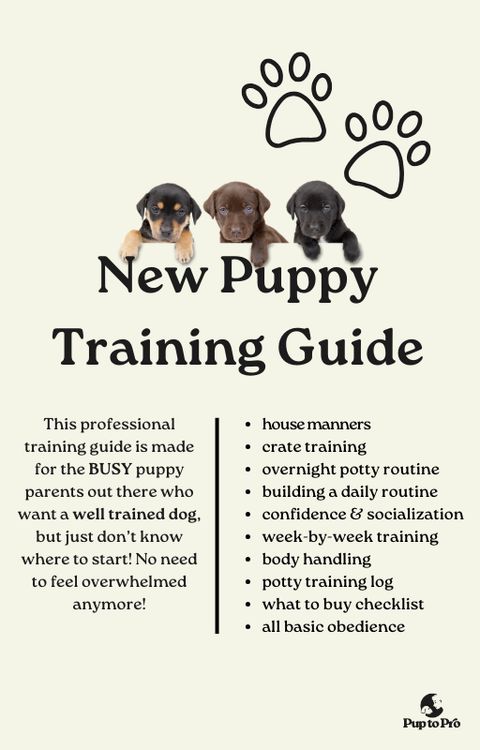Buzz Haven: Your Source for Trending Insights
Stay updated with the latest buzz in news, trends, and lifestyle.
Pawsitive Vibes: Turning Your Puppy into a Polite Pooch
Unleash your pup's potential! Discover fun tips to transform your rambunctious puppy into a well-mannered companion.
5 Essential Commands Every Puppy Should Learn for Good Manners
Teaching your puppy basic commands is crucial for establishing good manners and ensuring a harmonious relationship between you and your furry friend. Here are five essential commands that every puppy should learn:
- Sit: This is one of the first commands you should teach your puppy. It's a great way to instill discipline and promote good behavior, especially in situations where they may be overly excited.
- Stay: The 'stay' command helps keep your puppy in place, which is particularly useful during walks or in crowded environments. It's essential for their safety and helps them learn impulse control.
Continuing with our list, here are three more commands that are key to raising a well-mannered pup:
- Come: Teaching your puppy to 'come' when called can prevent dangerous situations and is a vital command for their wellbeing.
- Leave it: This command is invaluable for preventing your puppy from picking up potentially harmful objects or food.
- Down: Finally, the 'down' command encourages calmness and helps in managing unwanted jumping or excitement, making it an essential part of your puppy's training.

Common Misbehaviors in Puppies and How to Correct Them
Every new puppy owner encounters common misbehaviors that can be frustrating. Some of these behaviors include excessive barking, chewing on furniture, and house training issues. For instance, barking may signal boredom or anxiety, while chewing is often a result of teething or exploratory behavior. Understanding the root cause of these actions is essential. For effective correction, ensure that your puppy receives ample exercise and mental stimulation. Engaging in interactive playtime and providing proper chew toys can significantly reduce unwanted chewing, while consistent training can help curb excessive barking.
To address house training issues, adopt a routine that includes frequent bathroom breaks and reward-based training. When your puppy relieves itself outside, immediately offer praise and treats to reinforce this desirable behavior. On the other hand, if accidents occur inside, avoid scolding, as this can lead to fear and further issues. Instead, clean up thoroughly to eliminate lingering odors that might attract your puppy back to the same spot. With patience and positive reinforcement, you can effectively correct these common misbehaviors and foster a well-behaved companion.
How to Socialize Your Puppy for a Well-Adjusted Adult Dog
Socializing your puppy is a crucial step in ensuring they grow into a well-adjusted adult dog. The early weeks of a puppy's life, typically between 3 and 14 weeks, are a prime timeframe for exposure to new experiences, people, and other animals. Puppy socialization should involve a variety of settings, including parks, pet stores, and homes with other dogs. It’s essential to make these experiences positive and non-threatening, as negative encounters can lead to fearfulness or aggression in the future.
To effectively socialize your puppy, consider following these steps:
- Introduce your puppy to different environments to build confidence.
- Encourage interactions with friendly dogs to learn appropriate play behavior.
- Expose your puppy to various age groups and types of people, including children, to promote comfort and reduce anxiety.
- Enroll in a puppy socialization class for professional guidance and structured play.